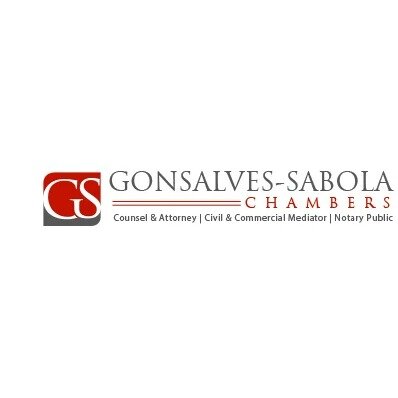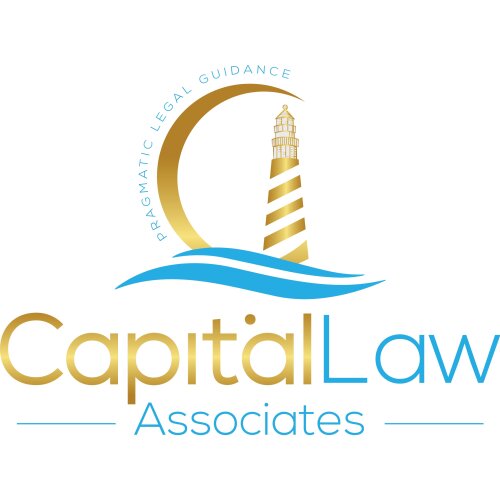Best Government Relations & Lobbying Lawyers in Bahamas
Share your needs with us, get contacted by law firms.
Free. Takes 2 min.
Or refine your search by selecting a city:
List of the best lawyers in Bahamas
About Government Relations & Lobbying Law in Bahamas
Government Relations & Lobbying in the Bahamas involve influencing public policy and decision-making processes by parties such as corporations, organizations, or individuals through strategic communication with government officials. The activities typically include advocating for legislative, regulatory, or policy outcomes aligned with the lobbying party’s interests. While the Bahamas does not have a comprehensive set of lobbying regulations as seen in other jurisdictions, the field is guided by general public interest laws, ethical guidelines, and standards of professional conduct to ensure transparency and integrity.
Why You May Need a Lawyer
Engaging in government relations and lobbying can present several challenges that might require legal assistance, including:
- Navigating Regulatory Frameworks: Understanding and adhering to the regulatory requirements related to lobbying, such as registration requirements and disclosure obligations when necessary.
- Drafting Policy Proposals: Preparing documents and proposals for interaction with government bodies demands precision and legal knowledge to ensure they are compelling and comply with legal norms.
- Ethical Compliance: Ensuring that lobbying activities are conducted ethically and within the legal boundaries, particularly concerning conflict-of-interest rules and anti-corruption statutes.
- Dispute Resolution: Handling disputes or misunderstandings that arise during interactions with government entities or officials.
- Strategic Advice: Obtaining strategic counsel on engaging with policymakers effectively and legally.
Local Laws Overview
The key aspects of local laws impacting Government Relations & Lobbying in the Bahamas include:
- Public Disclosure: Though not as comprehensive as in other jurisdictions, public officers are expected to maintain transparency about their engagements with lobbyists in certain contexts.
- Ethics and Anti-Corruption Laws: Laws focused on preventing corruption, conflicts of interest, and maintaining ethical standards among public officials and in transactions with lobbyists.
- Conflict of Interest Regulations: Regulations designed to prevent conflicts between private interests of lobbyists and public duties of officials.
Frequently Asked Questions
1. What is lobbying?
Lobbying is the act of attempting to influence decisions made by officials in the government, most often legislators or members of regulatory agencies.
2. Is lobbying legal in the Bahamas?
Yes, lobbying is legal in the Bahamas, but it must comply with ethical standards and is generally governed by transparency and anti-corruption laws.
3. Do I need to register as a lobbyist?
Currently, there is no mandatory requirement for lobbyist registration in the Bahamas, but lobbyists are expected to adhere to ethical guidelines and transparency standards.
4. What ethical standards apply to lobbyists in the Bahamas?
Lobbyists are expected to maintain integrity, ensure transparency in their dealings, and avoid conflicts of interest or corrupt practices.
5. What are the penalties for unethical lobbying practices?
Penalties can include fines, sanctions, or disqualification from engaging in lobbying activities. Serious offenses may lead to legal action under anti-corruption laws.
6. Can foreign entities lobby the Bahamian government?
Yes, foreign entities can engage in lobbying within the Bahamas, but they must comply with the same ethical and legal standards expected of local lobbyists.
7. How can a lawyer help with government relations?
A lawyer can provide guidance on ensuring compliance with applicable laws, advise on strategy, draft necessary documentation, and offer representation in case of disputes.
8. Are there any restrictions on who can lobby in the Bahamas?
While there are no specific restrictions, individuals engaging in lobbying must not have conflicts with public duties and must adhere to ethical standards.
9. How does one engage effectively in government relations?
Effective engagement often requires understanding the political landscape, clear communication, building relationships, and ensuring legal compliance.
10. What is the role of government relations specialists?
They work to bridge the gap between private entities and the government, advocating for beneficial policy outcomes and providing insights into governmental processes.
Additional Resources
For further assistance, consider reaching out to:
- Office of the Attorney General: Provides insights on legal frameworks in government relations.
- Bahamas Chamber of Commerce and Employers' Confederation: Offers resources and networking opportunities for engaging in business with the government.
- Bahamas Bar Association: Can help in finding qualified legal professionals with expertise in government relations and lobbying.
Next Steps
If you require legal assistance in Government Relations & Lobbying, consider undertaking the following steps:
- Consult with a lawyer experienced in government relations to understand your legal obligations and opportunities.
- Gather and prepare all relevant documentation and information related to your lobbying activities or government engagements.
- Review your strategies and ensure they align with legal and ethical standards.
- Remain informed about any legislative changes affecting your lobbying activities.
Taking these steps will help ensure that your efforts in government relations and lobbying are legally sound and effective.
Lawzana helps you find the best lawyers and law firms in Bahamas through a curated and pre-screened list of qualified legal professionals. Our platform offers rankings and detailed profiles of attorneys and law firms, allowing you to compare based on practice areas, including Government Relations & Lobbying, experience, and client feedback.
Each profile includes a description of the firm's areas of practice, client reviews, team members and partners, year of establishment, spoken languages, office locations, contact information, social media presence, and any published articles or resources. Most firms on our platform speak English and are experienced in both local and international legal matters.
Get a quote from top-rated law firms in Bahamas — quickly, securely, and without unnecessary hassle.
Disclaimer:
The information provided on this page is for general informational purposes only and does not constitute legal advice. While we strive to ensure the accuracy and relevance of the content, legal information may change over time, and interpretations of the law can vary. You should always consult with a qualified legal professional for advice specific to your situation.
We disclaim all liability for actions taken or not taken based on the content of this page. If you believe any information is incorrect or outdated, please contact us, and we will review and update it where appropriate.
Browse government relations & lobbying law firms by city in Bahamas
Refine your search by selecting a city.

















